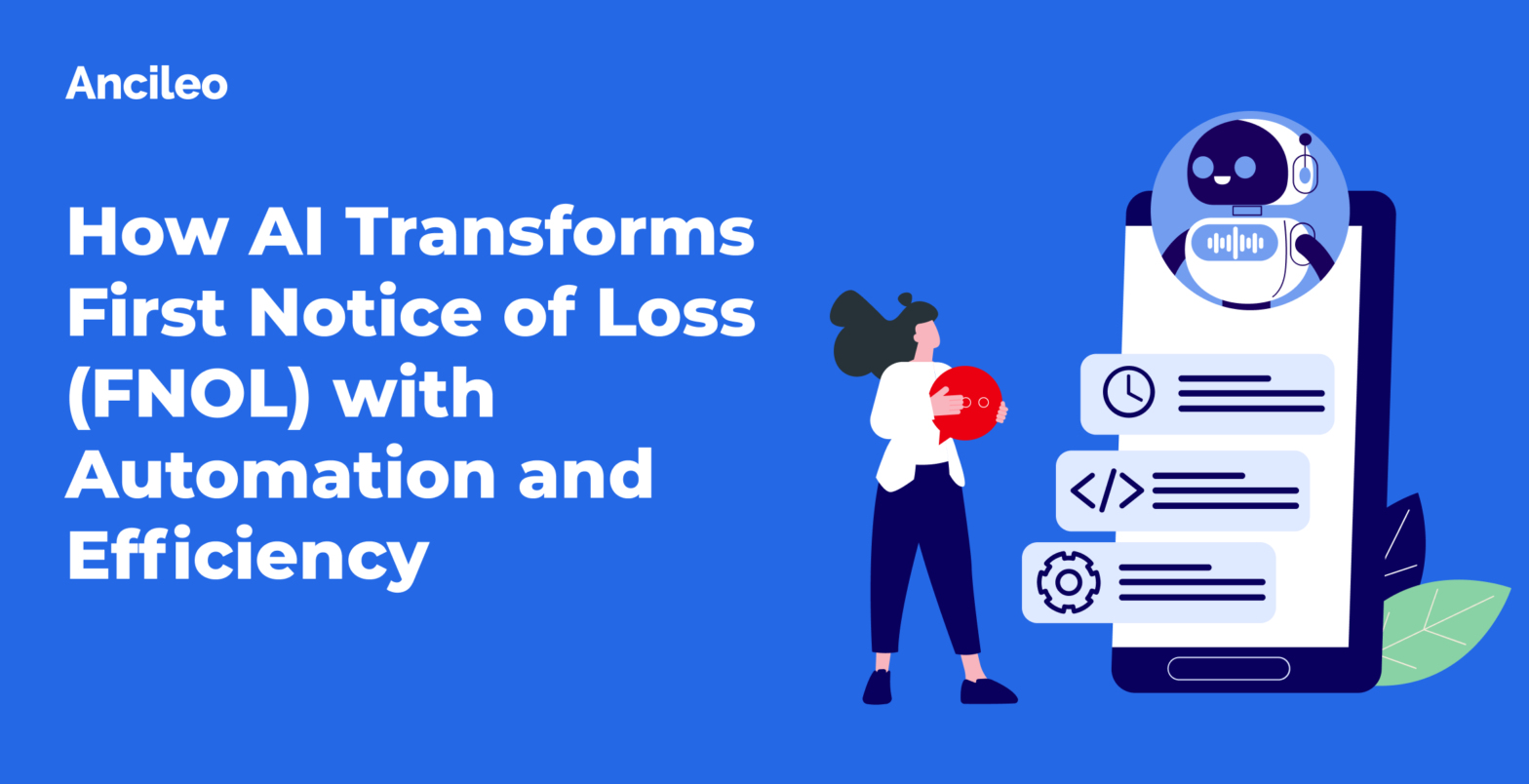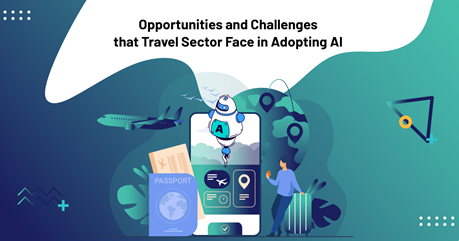
In the realm of travel insurance, the process of initial claims reporting is commonly referred to as First Notice of Loss (FNOL). It plays a pivotal role in shaping the customer experience and the efficiency of claims management. In the past, FNOL consisted of manual data entry, phone calls, etc., which can lead to delays and annoyance for the customer and insurer. Now, AI is transforming FNOL in travel insurance, creating a whole new way to handle claims. FNOL serves as the first point of contact between the insured and the insurance provider.
An accurate, timely, and efficient FNOL significantly impacts customer satisfaction, claim processing costs, and overall effectiveness in the travel insurance sector. AI-driven solutions are revolutionizing FNOL by automating and streamlining the process. These solutions expedite claim assessment and optimize resource allocation.
Machine learning (MP), Natural language processing (NLP), and predictive analytics are the tools that enable AI to set new standards for efficiency and accuracy. Hence, redefining the efficiency and accuracy benchmarks for FNOL in travel insurance through AI. This article will highlight the impacts of AI on expediting claims reporting, minimizing errors, and enhancing the overall accuracy of information captured during FNOL.

Source: Litigation Management – CHARLEE.AI
The First Notice of Loss (FNOL) is the process where policyholders or claimants inform their insurance company about an incident or loss claiming their insurance policy. This notification typically includes details about the event, such as the date, time, location, and a brief description of the loss. It is essential to know that timely and accurate FNOL reporting is crucial for both the policyholder and the insurance company.
Prompt reporting allows the insurance company to initiate the claims process swiftly. In addition, it helps in understanding the situation and making arrangements for necessary assistance, such as emergency repairs or medical treatment. Earlier, the traditional FNOL processes often faced challenges related to reporting delays, lack of detailed information, and manual claim handling. Delays in reporting can hinder the insurance company’s ability to provide timely assistance.
The incomplete or inaccurate information may lead to claim processing errors or disputes. Overall, the manual nature of traditional FNOL processes can result in inefficiencies, increased administrative costs, and longer turnaround times for claims resolution. Thus, recognizing the importance of FNOL highlights the need for smoother FNOL processes. It would improve the claims experience for both travel insurance policyholders and providers.

Source: Litigation Management – CHARLEE.AI
AI (Artificial Intelligence) has significantly transformed the First Notice of Loss (FNOL) process in travel insurance, revolutionizing the overall process of claims. The integration of AI technologies has enabled insurers to streamline the FNOL process, enhance customer experience, and improve operational efficiency.
AI facilitates quick analysis of historical claim data, policy information, and external factors such as weather patterns or travel trends in large volumes with high speed. This accelerated data processing speed allows travel insurers to derive actionable insights promptly, leading to faster decision-making and response times during the FNOL process.
By leveraging machine learning models, insurers can predict and anticipate claims trends and patterns based on historical data. It also enables insurers to allocate resources proactively, adjust premiums, and implement risk mitigation strategies.
NLP algorithms enable the accurate understanding and interpretation of unstructured claim descriptions. Hereby ensuring that the details provided by customers are comprehensively analyzed for faster processing and assessment for travel insurance. This semantic understanding aids in extracting pertinent information from claim narratives.
It reduces the need for manual intervention and improves the overall accuracy of claim intake for travel insurance. NLP-based chatbots and automated communication systems facilitate seamless interactions with customers during the FNOL process. They provide instant responses to queries, guide claimants through the necessary steps, and enhance overall customer satisfaction.
AI-powered image and video analysis tools enable travel insurers to assess damage and severity through visual data. Moreover, it allows a more comprehensive understanding of the nature and extent of the claim. This capability enhances the accuracy of damage assessment and expedites the claims settlement process, leading to improved operational efficiency.
AI has revolutionized the FNOL process in travel insurance by enabling rapid data processing, accurate claim intake, and enhanced visual data analysis. Hence, significantly improving the operational efficiency, customer experience, and decision-making for insurers in the travel insurance sector.

Source: AI-driven automation: Benefits and challenges in industry transformation – Express Computer
AI-driven FNOL automation expedites claim processing by significantly reducing the time from the incident to its resolution. AI systems can swiftly extract, analyze, and categorize claim information by utilizing advanced algorithms for travel insurance. Hence, this leads to quicker assessment and settlement of the claim.
One key benefit of AI-driven FNOL automation is the enhanced accuracy and robust fraud detection capabilities it offers for travel insurance. AI systems can identify subtle anomalies and aberrations in claims data by leveraging machine learning and pattern recognition.
Thus leading to a substantial reduction in false claims and fraudulent activities. Statistical insights reveal a significant decline in fraudulent claims, illustrating the role of AI in the integrity of the claims process. Hence safeguarding travel insurers against financial losses and reputational damage.
AI-driven FNOL automation improves customer experience by delivering personalized and responsive service to policyholders. By analyzing historical data on travel insurance, AI for insurance claims processing can anticipate customer needs, provide tailored support, and offer proactive communication.
Consequently, customer satisfaction metrics reflect higher ratings and enhanced feedback attributed to the implementation of AI-driven FNOL. By underscoring AI’s positive impact on elevating the overall customer experience, stronger insurer-policyholder relationships build up.

One of the primary implementation challenges in travel insurance revolves around ensuring the privacy and security of customer data. With the increasing threat of cyber-attacks and data breaches, travel insurance providers must prioritize the protection of sensitive customer information. Implementing robust security measures and adhering to strict data privacy regulations are essential in addressing this challenge.
To overcome data privacy and security concerns, travel insurance companies need to meticulously adhere to data protection regulations such as GDPR and HIPAA. Implementing data encryption protocols, conducting regular security audits, and establishing clear data handling procedures are crucial in ensuring compliance. Additionally, investing in advanced cybersecurity technologies and regularly training employees on data security boosts regulatory adherence for travel insurance companies.
Another significant challenge in implementing travel insurance is integrating modern technologies with existing legacy systems. It can often lead to technological barriers hindering the seamless operation of new platforms and solutions within the travel insurance infrastructure.
To address the integration challenges, travel insurance providers can leverage API solutions that facilitate the seamless connection between new and old systems. Application Programming Interfaces (APIs) allow for the efficient exchange of data and functionalities between disparate systems, enabling a smooth integration process. Travel insurance companies can modernize their operations without disrupting existing work through API-driven approaches.
In the realm of travel insurance claims processing, implementing artificial intelligence poses a challenge. To empower claims professionals with the necessary skills to leverage AI-driven processes effectively requires thorough training.
To tackle this challenge, travel insurance companies can initiate comprehensive training and upskilling programs aimed at equipping claims professionals with AI skills. By providing tailored education on AI utilization in First Notice of Loss (FNOL) processes, insurers can empower their workforce to harness AI’s potential for efficient claims handling.

Source: The Future of AI: Trends and Predictions | LinkedIn
In the future, the evolution of AI in insurance claims and First Notice of Loss (FNOL) processes for travel insurance is anticipated to bring about significant innovations and advancements. AI-powered systems are expected to streamline the claims reporting process for travelers, enabling quicker and more accurate assessment of losses. AI enhances the efficiency of gathering initial loss information, leading to more prompt and personalized customer service through machine learning.
The travel insurance industry is projected to experience substantial growth in the adoption of AI insurance claims. As AI technology continues to mature, its application in analyzing and processing claims data is expected to streamline the entire claims management process.
Market research data suggests a significant increase in AI’s penetration in FNOL technologies within the travel insurance sector. The forecasted data indicates a growing reliance on using ai to automate insurance claims and expedite the FNOL process. This trend is expected to revolutionize how travel insurance companies handle and respond to claims, ultimately enhancing customer satisfaction and operational efficiency.
As AI becomes more ingrained in travel insurance processes, ethical considerations surrounding bias and fairness in AI algorithms are gaining prominence. Addressing these concerns is essential to ensure equitable treatment for all policyholders. Proactive measures, such as diversifying the data used to train AI algorithms, are necessary to promote fairness in claims assessment within the travel insurance industry.
Ensuring diversity in the data utilized to train AI algorithms is paramount in guaranteeing equitable treatment in claims assessment for travel insurance. By incorporating diverse datasets, travel insurance companies can minimize the risk of algorithmic biases in AI insurance claims processing. This approach aligns with the industry’s commitment to ethical and responsible AI utilization.
In conclusion, the impact of AI on First Notice of Loss (FNOL) efficiency and accuracy in the travel insurance sector has been substantial. In the past, reporting travel insurance claims was a slow and cumbersome process. But AI is changing the game! This technology streamlines the FNOL (First Notice of Loss) process, making it faster, more accurate, and ultimately more convenient for both travelers and insurers.
The future of FNOL automation in the insurance industry appears promising, with advancements in AI ultimately reshaping the landscape of AI for insurance claims processing. There are no two options in accepting the reality of AI in this digital landscape of claim management and providing superior service in the dynamic insurance market.